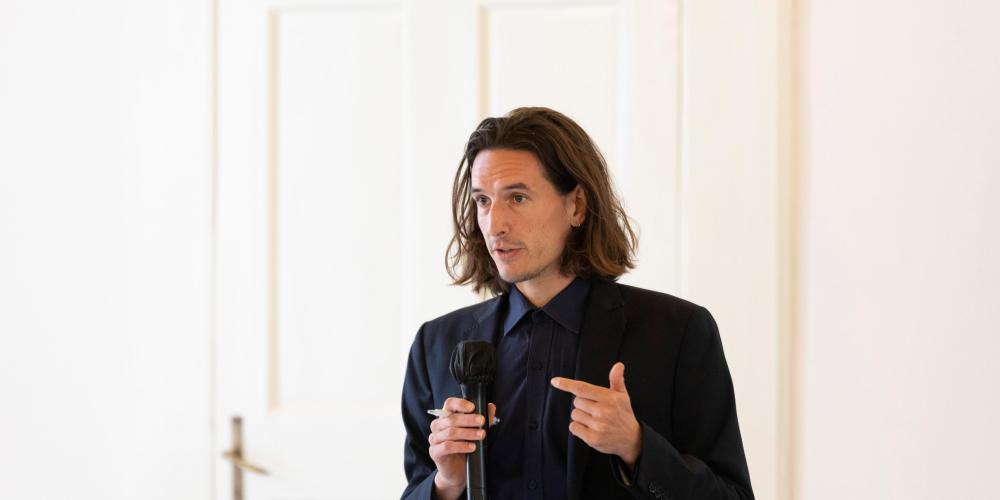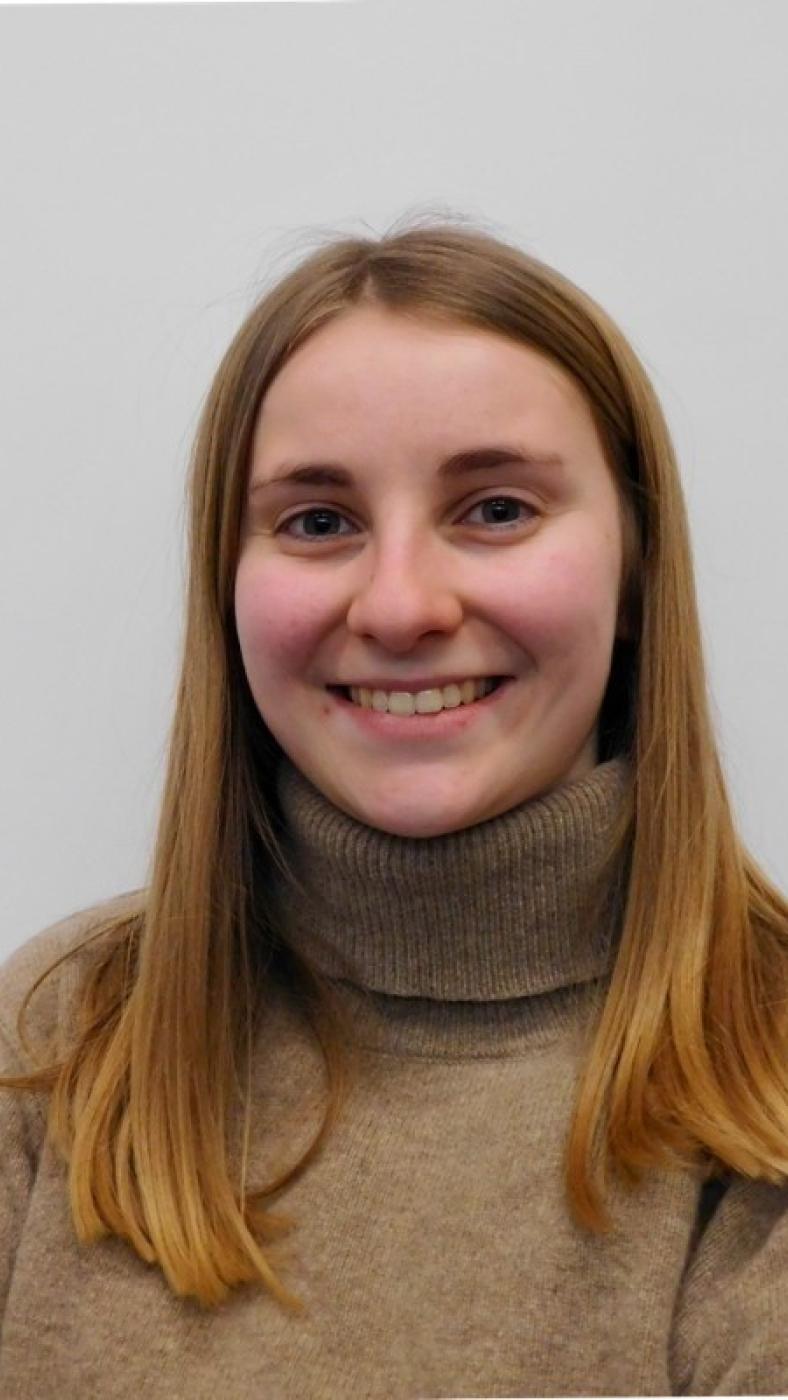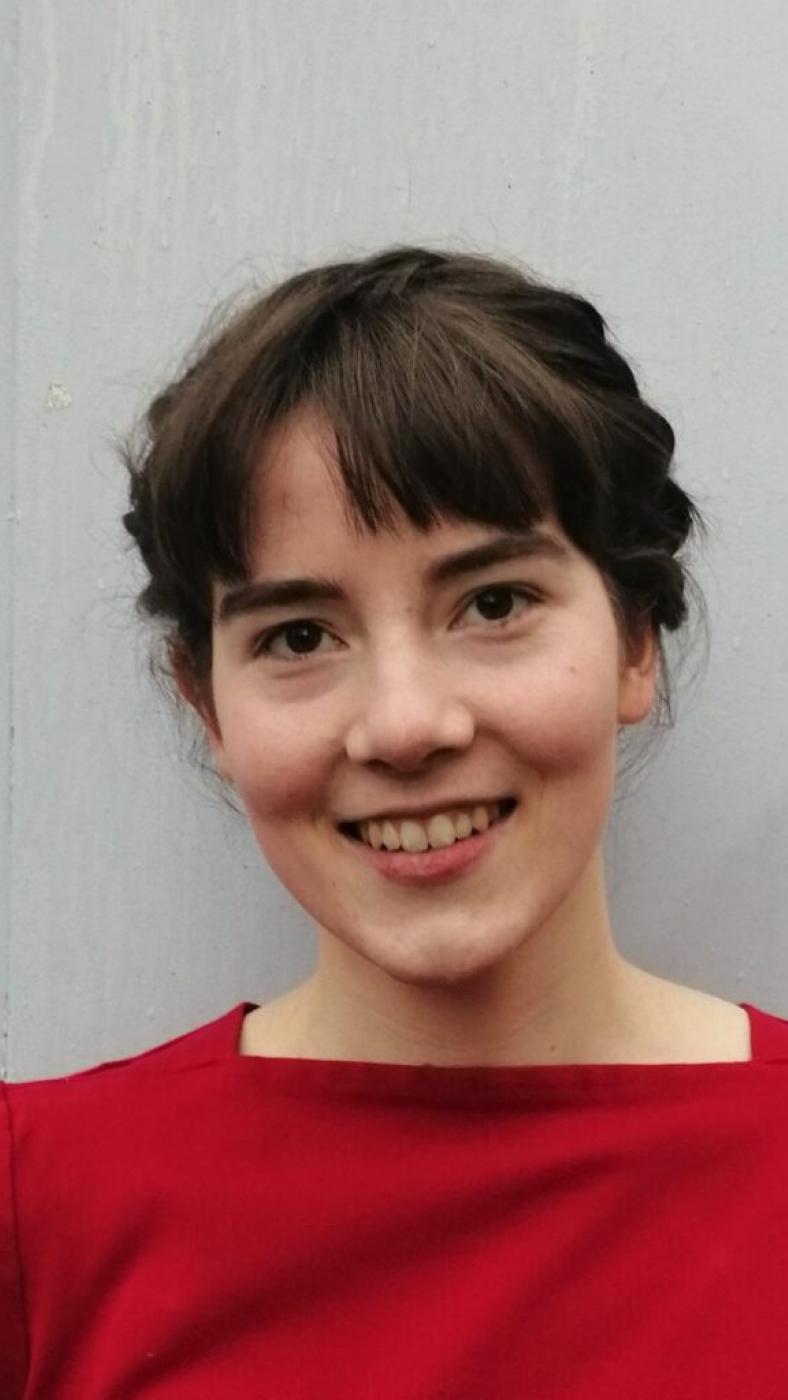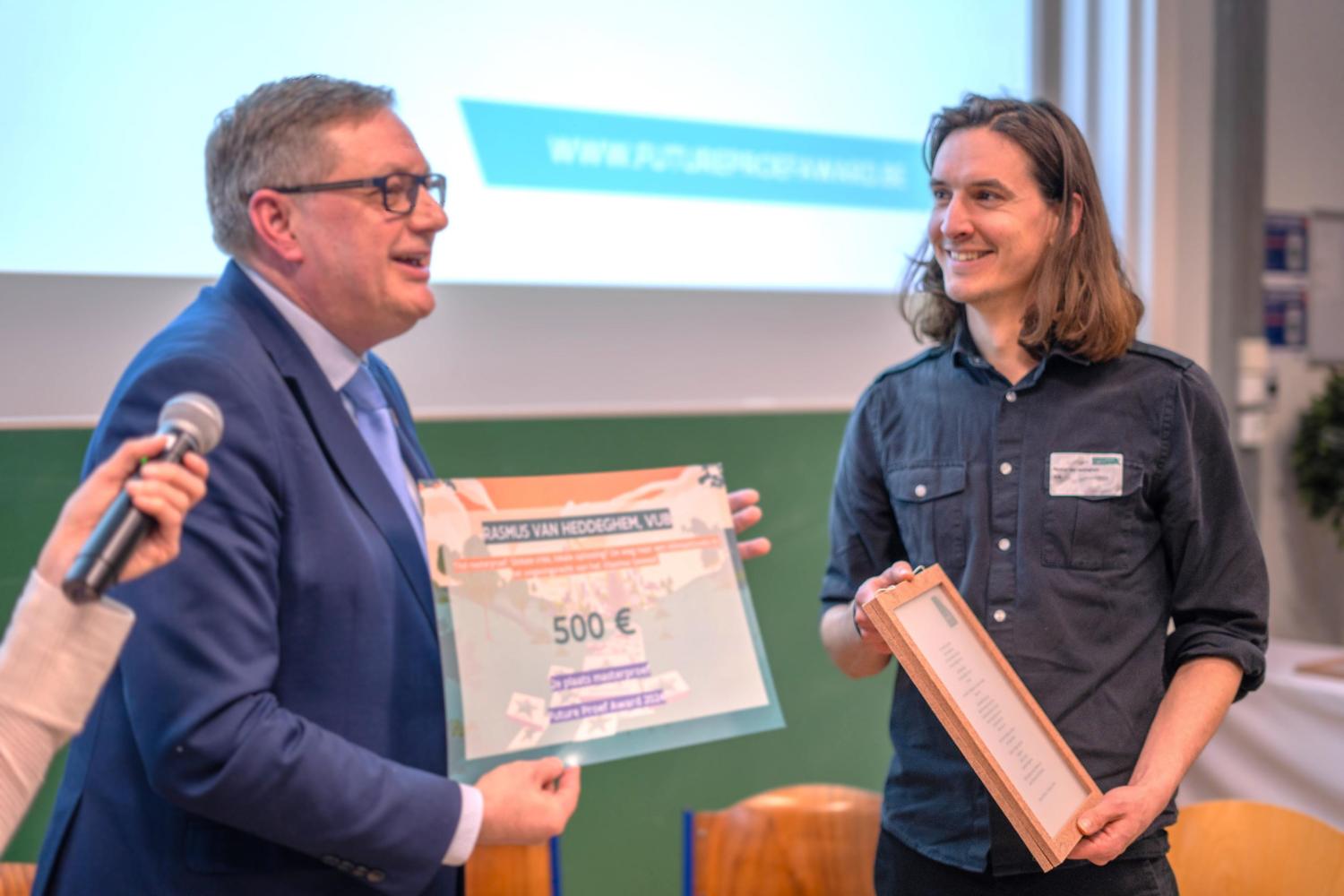
The winners of the Flemish Future Proef Awards were named on Earth Day, 22 April. The VUB submitted three candidates for the awards, which aim to make a difference in sustainability, the subject of the competition. The students representing the VUB are Lena Jenart from engineering sciences, Anne Risse from communication sciences and Rasmus Van Heddeghem from the law school, who took second prize.
This first presentation of the Flemish Future Proef Awards was hosted by the VUB and presented by stand-up comedian and VUB Fellow Erhan Demirci. Climate poets also made an appearance. But in the end, the show was all about the people submitting their master’s theses for scrutiny. We asked them a few questions.

Lena Jenart
Lena Jenart wrote a guide to reusing materials.
Can a competition change the world?
Lena: “In countries like ours, where resources seem abundant, saving materials can seem less crucial. But nothing could be further from the truth. This is even more true in countries where resources are more limited, where clean water is scarce, where building materials are rare and energy expensive. It is essential to encourage a circular model for reuse rather than continuing to use new raw materials.”
"I prefer to focus on my own actions for a more sustainable future."
What do you hope to achieve with your thesis?
“I believe that real impact is measured not only by the ideas someone develops, but also by their ability to change people who interact with them.”
What is the line between science and activism?
“That is a complex question. But within the context of sustainability, it is crucial to recognise that science and activism can complement each other. While science provides objective data, activism can bring about change by mobilising people and influencing policy. A constructive collaboration between the two can be helpful in moving towards a fairer and more sustainable future.”
Are you intentionally looking for a career in sustainability?
“I am determined to look for work in which I can integrate principles of material economy and environmental sustainability. For me, it is essential to open the right doors in such a crucial field as construction. By exchanging ideas with experts in that field, I want to not only develop my ideas but also implement them and thus make a positive contribution to protecting our planet.”
Elon or Greta: who is your role model?
“I admire Greta Thunberg’s courage to take a stand on such an important issue. She plays a crucial role in raising awareness and spurring action. I have not delved into Musk’s businesses, and while I find his approach questionable at times, his influence on my life remains marginal. I prefer to focus on my own actions for a more sustainable future.”

Anne Risse
Anne Risse studied the social media impact of Fridays For Future, Greta Thunberg’s movement behind the school climate strikes.
Can a competition change the world?
Anne: “With my master’s thesis on the international communication of the youth climate movement, I wanted to answer questions I had asked myself as an activist. I had thought for some time that the many climate groups that have sprung up around the world in a similar way could be a valuable source of information about regional differences or similarities. I took advantage of the thesis to delve further into it. After all, you rarely get the chance to call activists in Uganda or Japan and interview them for an hour!”
"I think science should contribute to the common good."
What do you hope to achieve with your thesis?
“I would like to contribute to a better understanding of how to talk about sustainability in a way that triggers positive change. For example, how to remain nuanced but engaged, how to be honest about the threats without being demotivating or how to address local issues without losing sight of global problems.”
Are you intentionally looking for a career in sustainability?
“Yes. After graduation I did an internship at a forest organisation in Brussels where I learned more about advocating for environmental justice and nature in the EU. Then, two and a half months ago, I started working at a European organisation that aims to channel money flows in a sustainable way.”
What is the line between science and activism?
“I think science should contribute to the common good. That can also mean defending a political position. Science should of course be transparent about how you arrive at a position, with a certain need to consider counter-arguments and an obligation to include results that disagree with one’s own position. Science has to be the foundation of political positions.”
Elon or Greta: who is your role model?
“What I find very motivating about Greta Thunberg is that a seemingly insignificant young person can have an amazing impact at the right time. You might have the impression that the whole population is numb and indifferent, yet a few determined voices can suddenly bring about change.”
Rasmus Van Heddeghem explored whether the Flemish region’s environmental law is suitable for tackling the climate crisis at local level.
Rasmus Van Heddeghem took joint second place with a student from KU Leuven. His thesis was entitled “Global crisis, local solution? The road to a climate test in the environmental law of the Flemish Region” First place went to Fien Vansevenant of UGent, for her thesis on healthcare. Rasmus: “Climate change permeates all aspects of our lives. An initiative like the Future Proef Awards shows that solutions can be found by working together, across all policy domains.”

Rasmus Van Heddeghem receives his second prize worth €500 for his master's thesis.
Can a competition change the world?
Rasmus: “The Future Proef Award shows in an inspiring way how students from the most diverse fields deal with the question of how to live in an era when our climate is irrevocably changing. Climate change confronts us with fundamental questions about justice and even challenges us to fundamentally rethink the role of law in our society.”
"Every student, researcher or practitioner will have to figure out for themselves where the line between science and activism lies."
What do you hope to achieve with the trial?
“My research asks whether the calls for climate justice and big words on the international stage can be translated into the regulation of our immediate environment. Hopefully, this research will help break down the barriers between big words and small actions that can actually lead to change.”
What is the boundary between science and activism?
“Activism cannot exist without scientific research and knowledge, just as climate and environmental law cannot exist without science. Every student, researcher or practitioner will have to figure out for themselves where the boundary lies.”
Are you intentionally looking for a career in sustainability?
“After my studies, I started the bar internship as a lawyer, but I am still connected to the VUB as a volunteer scientific assistant. Both in my practice and further research, I will continue to focus on climate law.”
Elon or Greta: who is your role model and why?
“Really, any other questions?”